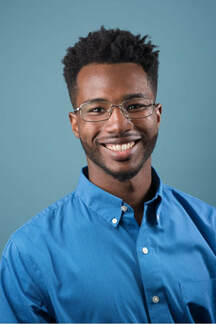|
4/8/2019 0 Comments In Gratitude for the Black Women who Bookend my Life at Berkeley and Beyond by Caleb Dawson Black women bookend all of my educational endeavors. Though I had no black professors as an undergraduate student, sociologists Margaret L. Anderson and Patricia Hill Collins edited the book that introduced me to feminist studies during my first semester. Though I had no training in psychology, social psychologist Dr. Onnie Rogers trained me how use my black feminist inspired sociological imagination to assist her in researching adolescent racial and gender identity development. And though I questioned how much of my formal undergraduate studies was miseducating, bell hooks could (new) school me via Youtube about the spiritual foundations and impetus of black liberation. When I arrived at UC Berkeley, black women had already occupied places of influence and been ensuring that I could live and move and breathe more freely. Dean Prudence Carter recognized our exceptionalism, and outgoing Vice President of Equity and Inclusion Na'ilah Nasir applauded how our greatness was about what we could do for others. Tiffani Johnson encouraged us to play the game of doctoral studies on the turf of our interests rather than measuring ourselves according to our professor's expertise. Derrika Hunt reminded us to not lose why we came to Berkeley when we got to and move through Berkeley. These were my first 24 hours of visiting campus. These were only the initial greetings. Many of these and many more black women have constructed and led the various formal and informal sites that hold, protect, refresh, and prepare me to live and love my blackness in an antiblack society. There is no manner for us to adequately comprehend what suffering is being mitigated or who we are becoming apart from centering the legacies of black women. I was not impressed that there were impactful black women at Berkeley. I was reminded and humbled by how devoted and generous black women have been to ensure that incomers across the board would be affirmed, encouraged, oriented, and connected to a sense of place and purpose bigger than any institution. But I have also reflected on how rare it is for any institution to honor the lives and labor of black women. Most of us actually benefit from and do not mind black women doing too much of the much needed work. And too few of us other than black women care whether black women get credit or survive the work of ensuring our collective survival. I believe that black men like myself can and should make space for black women to speak (CBW Praxis #4). I recognize that black women have been more than capable, resourceful, and efficacious at making room for themselves, but I want people to set up black women as generously as we as a society have been set up by black women. I want black women to have moments when they can just show up and simply benefit from others' care and commitment to them just as the rest of the world does with black women. I firmly believe that if we are to give black women the space and time to breathe (CBW Praxis #5), other folk like myself need to step up and share the workload of sustaining our freedom dreams, especially those of black women. I hope that when my book ends, so too will the exploitation of black women's labor. May we build other paths toward freedom than the bridge called her back. Bio: Caleb Dawson studies how antiblackness is reproduced in "progressive" educational institutions and how black folk sustain themselves in those sites. In his current work, he seeks to make sense of black struggles in historically white colleges and universities (HWCUs). He is using interview methods to learn about the desires that black students and staff bring to HWCUs, their perception of institutional commitments to black people, and the gendered configuration of sources and practices of support on which black folk rely. He is committed to advancing black life beyond the possibilities of educational institutions as we know them. Caleb is a PhD student in the Critical Studies of Race, Class, and Gender cluster at UC Berkeley's Graduate School of Education.
0 Comments
Your comment will be posted after it is approved.
Leave a Reply. |
Archives
October 2021
Categories |
Proudly powered by Weebly
 RSS Feed
RSS Feed